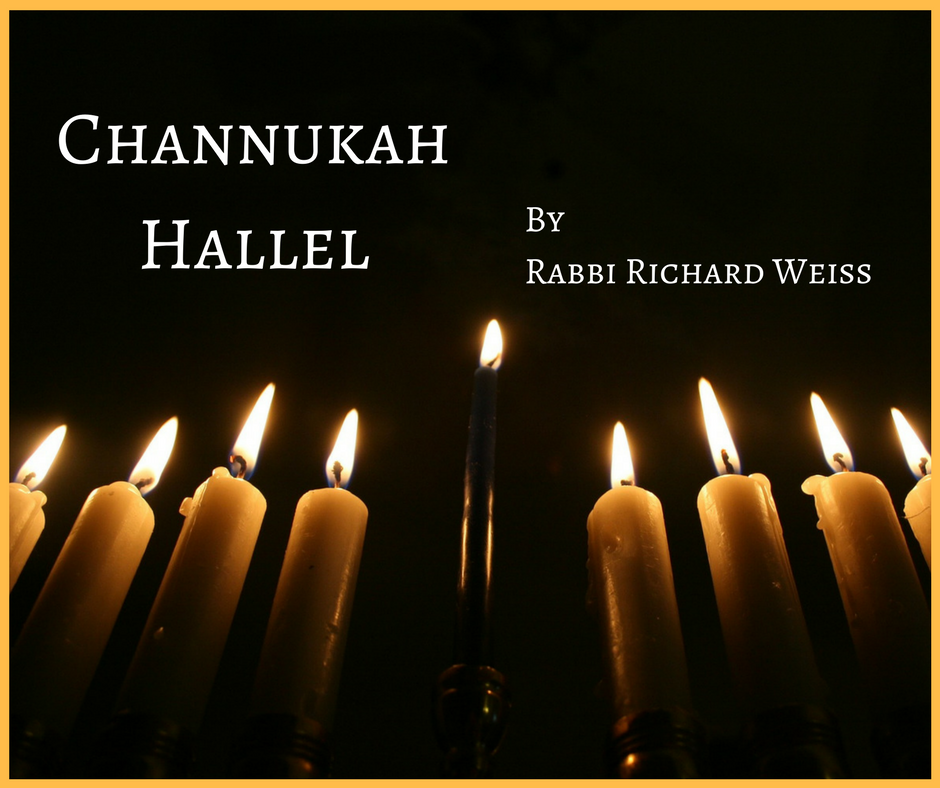
Rabbi Shmuel Bornstein (1856-1926), in Shem Mi’Shmuel, suggests that the Hallel of Chanukah is fundamentally different than the Hallel of other holidays such as Pesach. The Hallel of most holidays is an expression of celebration and jubilation which reflect our own emotional state. We feel extraordinarily upbeat about ourselves personally and religiously as a result of the kedushah of the Yom Tov, which is associated with the historic event being commemorated. The Hallel, then, is commensurate with our frame of mind.
Hallel of Chanukah is quite different. This Hallel expresses gratitude to Hashem out of a sense of humility. We do not feel exalted or elevated in the experience of the holiday; rather we feel undeserving. Historically, many Jews did acquiesce under tremendous coercion to the religious dictates of the Assyrian Greeks. This is what is meant by the phrase in the ‘Al Ha’Nisim’ , “V’Rabim B’Yad M’Atim”-and many in the hands of few. The number of Jews who actually withstood the intense challenge of the Greeks was few. Yet, Hashem, in His ultimate compassion, rescued our people and allowed us to secure Judaism for then and the future. The miracle of the oil lasting longer than it should have naturally was designed to convey this exact theme. We were privileged to receive more than we were deserving of. The Hallel, then, articulates our acknowledgment of this, and helps to instill within us a sense of profound humility in the presence of Hashem.
In life, we are often beneficiaries of well deserved achievements and success. We should appropriately celebrate and relish those moments. We shouldn’t ignore or dismiss such opportunities, as this context for ‘Hallel’ is a very healthy and meaningful one. We should be fully cognizant of our own capabilities and accomplishments. Other times, however, we are the recipients of graciousness and good fortune for which we are not entirely entitled. In such instances, ‘Hallel’ must also be expressed. This ‘Hallel’, though, should be enunciated from a mindset of humility in acknowledging the involvement of other people in our lives, and, in particular, the ultimate source of our ‘mazal’ – Hashem.
Rabbi Richard Weiss
Young Israel of Hillcrest